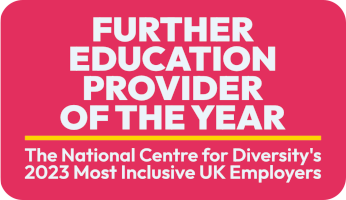Voting as a student
You need to be registered to vote before you are allowed to vote in elections or referendums in the UK.
Registering to vote usually takes about 5 minutes, and once you are registered it means you can vote in any UK election or referendum that you are eligible to vote in.
To register to vote, you must be:
• a UK or Irish citizen
• a qualifying Commonwealth citizen living in the UK
• an EU citizen living in the UK
• aged 16 or over (but you can’t vote until you’re 18 years old).
Register to vote
How do I register to vote?
You need to register to vote on the UK Government’s website. You can also find in there information about registering using a paper form.
You will be asked to provide your name, your date of birth, your nationality and your National Insurance number. If you do not know your National Insurance number, you can get assistance in finding it here.
How old do I have to be to register to vote?
There are different rules about the minimum voting age in different UK elections.
In England and Northern Ireland you must be aged 16 or over to register to vote, but in Scotland and Wales you must be 14 or over.
This is because the minimum voting age in some elections in Scotland and Wales is 16, compared to 18 in the rest of the UK. The minimum voting age in General Elections is 18.
I am not a British citizen. Can I register to vote?
You do not have to be a British citizen to vote in UK elections or referendums.
There are different rules on whether you can vote depending on your nationality in different UK elections.
Use this tool to find out which elections you can vote in.
Is there a deadline to register to vote?
The deadline to register to vote in a UK election or referendum is usually 12 working days before polling day. For example, the deadline to register to vote in the local elections in England and Wales on Thursday, 2nd May is Tuesday, 16th April. You can register to vote up until 23:59 on the day of the deadline.
I’m already registered to vote.
What else do I need to know?
New laws mean you now have to show photo ID to vote at polling stations in General Elections in the UK. This was already the law in Northern Ireland.
You can find a full list of accepted voter IDs in each UK nation via the Electoral Commission here.
NUS have teamed up with CitizenCard to offer a FREE Voter ID (usually £18) to any student or young person who needs it.
Are there other benefits of being registered to vote?
Being registered to vote could improve your credit score, because banks and other lenders often use the Electoral Roll to help verify your identity.
This could help when it comes to things like taking out a mobile phone contract, especially if you do not have a long credit history. It could also help if you’re looking to buy a car, rent, or even secure a mortgage.
Can I be registered to vote at more than one address?
Students are allowed to register to vote at more than one address if they consider both places to be a permanent home.
We know that students often split their time between their term-time address and their home address, so it’s important that you are registered at both.
Depending on the election, you may also be able to vote in both locations. In General Elections, referendums and devolved parliamentary elections it is illegal to vote in two places, but in other elections, such as council elections you can vote in both areas as long as the addresses are in different council areas.
I’ve moved house recently, do I have to register to vote again?
We know that students change address more than most people, so it’s important that students double check that they are registered to vote.
You also need to register again if you have changed your name or nationality.
How to Vote
There are two things you should do before voting in elections or referendums in the UK:
• You must be registered to vote – find more information for students here
• You must have Photo ID* – get FREE Voter ID from CitizenCard using code ‘NUS’ here
*Photo ID is not required in all UK elections and there are different rules on photo ID if you vote in Northern Ireland.
On this page you will find information on how to vote in person, by post or by proxy (sending someone to vote on your behalf).
Information for students on voting in person
You vote in person at a polling station, which tends to be a public building such as a school, community centre or local hall.
You will be sent a poll card before an election or referendum telling you the location of your polling station.
You will only be able to vote at the polling station on your poll card. You do not have to take your poll card with you, and you can still vote if you have lost your poll card.
What time should I vote at?
Polling stations are open between 7am and 10pm on the day of an election or referendum.
As long as you are in the queue to vote at the polling station by 10pm, you will be allowed to vote.
What do I do at the polling station?
Staff at the polling station will ask for your name and address. In some elections and referendums, including General Elections, you will need to show Photo ID to confirm your identity.
You’ll be given a ballot paper containing a list of the people, parties or options you can vote for.
There will be instructions at the top of the ballot paper and on notices in the polling station on how to fill in your ballot paper.
I will not be able to vote in person – what should I do?
Check out our guidance on voting by post or voting by proxy (applying for someone else to vote on your behalf).
Voting by post
How do I vote by post?
You have to apply for a postal vote if you want to vote by post.
Students may want to apply for a postal vote if you want to vote at your home address but you are living at your term-time address, or vice-versa.
You may also want to vote by post if you are out of the country on the day of an election or referendum. You do not need to give a reason unless you are voting in Northern Ireland.
How do I apply for a postal ballot?
You can apply for a postal vote online or by post. If you plan to vote by post in Northern Ireland, use this form.
You can apply for a postal vote for
A) a single election on a specific date,
B) a specific period if you want to vote in England, Scotland or Wales, or
C) up to three years
Voting by proxy
What is voting by proxy?
Voting by proxy is where you ask a trusted person to vote on your behalf in an election or referendum.
You can only apply for a proxy vote under certain circumstances, which include:
• You will be abroad or away from your home constituency on polling day
• You are registered as an overseas voter
• You have a medical issue or disability
• You cannot vote in person because of work commitments or military service
How do I apply for a proxy vote?
You can apply for a proxy vote online or by post. If you plan to vote by post in Northern Ireland, use this form.
You must apply for a proxy vote by 5pm 6 working days before polling day in England, Scotland and Wales, and by 5pm 14 working days before polling day in Northern Ireland.
Who can act as a proxy for me?
Anyone can act as your proxy as long as they are
A) Registered to vote,
B) eligible to vote in the election or referendum taking place, and
C) can vote in the polling station stated on your poll card.
Your proxy will need to take their own Photo ID with them if it is required in that election.
If they cannot get to the polling station on your poll card, they can contact your local Electoral Registration Office to arrange to cast their proxy vote by post.
Can I change or cancel my proxy vote?
Yes, you can change or cancel who acts as your proxy by contacting your local Electoral Registration Office.
Get a Free voter ID
You’ll need photo ID at the General Election –
get a FREE CitizenCard today!
Deadline to apply for a FREE CitizenCard for the General Election is Thursday 20th June!
Voter ID laws are a new barrier to students and young people voting at the General Election on 4th July.
Join the movement fighting back and sign the petition to get a FREE ID from CitizenCard – using code ‘NUS’ at checkout – normally £18!
Young people are most at risk from being turned away for not having the right ID. But we won’t let anything stop us from having our say – there’s too much at stake.
Are you ready to stand up for young people’s right to vote, and speak out on the issues they face? Get your FREE CitizenCard (Worth £18) that you can use at the polling booth in England, Wales and Scotland*. Sign the petition to get your link to your FREE ID card today – code ‘NUS’ will be automatically applied at checkout.
* CitizenCard is not accepted as a form of voter ID in Northern Ireland – but you can still use it for other uses such as proof of age.
Get your FREE Voter ID via CitizenCard – NUS UK
Wellbeing tips – Student Space
A General Election may feel exciting, boring and for many, quite a stressful and emotive time. Here are some tips to maintain your wellbeing during the General Election. Read more
Frequently Asked Questions
Check out the FAQs section if you feel you have not found the information your looking for here.
Resources for tutors
Please view the PowerPoint presentation that can be used with students in tutorials, information around mental health support for students during the general election period and also how students can register to vote.


















